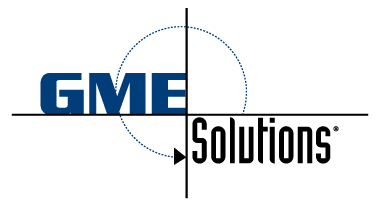Academic Medical Centers Can Be Paid for Non-Accredited Training Programs

May 1, 2018:
Are you skeptical? Certainly the fiscal intermediary’s auditors are and also current CMS Hospital Payment Policy Staff have confused the matter. But, have heart and claim the costs.
Here’s why! My analysis always begins with evaluating the intent of the Medicare Law. On this issue, the law clearly states that Medicare will share the Hospital’s cost of training. During my tenure as a Management Auditor with the GAO, (Government Accountability Office) we evaluated whether agency operated by following the intent of the law. We were not compliance auditors and often found problems with the law itself, and/or the agency regulations implementing the law. Prior to joining the Medicare Regional Office in San Francisco, I spent 4 years as a paralegal in the Air Force and 5 years with GAO. My first position with Medicare was being the “technical expert” to the U.S. Attorney’s Office who filed civil law suits on the very first Medicare Overpayment cases. My 20 years with Medicare included ensuring fiscal intermediary auditors properly applied Medicare rules and at times we had to rein them in for overzealous interpretations. I was also the Regional Office lead in implementing the Prospective Payment System. After retiring from Government Service, I spent 17 active years as a consultant to teaching hospitals. Now 7 years after my second retirement, I offer these thoughts.
The intent of the Medicare Law on paying its share of a hospital’s costs of training is stated in Senate Report of the original legislation. Simply put, it acknowledges “Training Enhances the Quality of Care in the Institution”. Specific language in the Senate Report 89-404 dated 6/30/1965 is as follows:
“Many hospitals engage in substantial educational activities, including the training of medical students, internship and residency programs, the training of nurses, and the training of various paramedical personnel. Educational activities enhance the quality of care in an institution, and it is intended, until the community undertakes to bear such education costs in some other way, that a part of the net cost of such activities (including stipends of trainees as well as compensation of teachers and other costs) should be considered as an element in the cost of patient care, to be borne to an appropriate extent by the hospital insurance program.”
Almost 20 years later in 1983, Medicare changed its payment methods to hospitals using the Prospective Payment System (PPS). This PPS method included interns, residents and fellows training in ACGME accredited programs. However, the other training programs remained on Medicare’s reasonable costs payment method.
These non ACGME accredited programs include the hospital’s “state of the art” advanced subspecialty GME programs. For example, most academic medical centers have unaccredited programs in Anesthesiology, Radiology, Neurology, Psychiatry, and Surgery. Such programs must be formally organized programs. No changes in the 1965 original law have occurred.
So, what do you think? Do you want to join us to get Medicare payments for your hospital? Our difference is that I have hands-on experience. I was there during the reasonable cost era, implemented PPS for the Regional Office and understand hospital training program. Most of the Central Office CMS staff begin and end their careers in Baltimore and have limited exposure to being an auditor and/or to hospital training programs.
Author:
Gene Chinn
Member-Board Advisor
